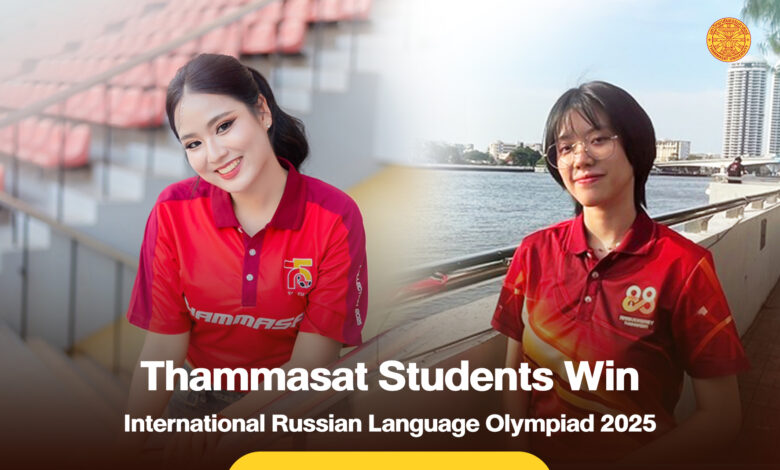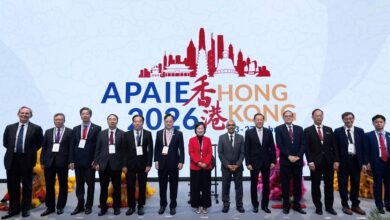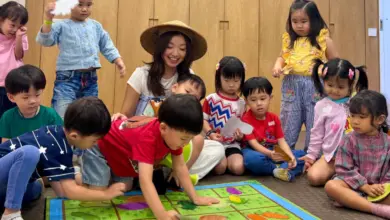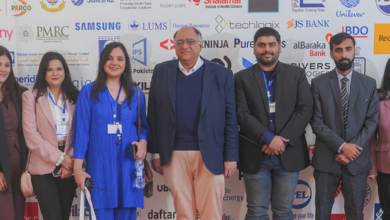Thammasat Students Win International Russian Language Olympiad 2025

Thammasat Students Make History in Russian Language
Thammasat University students made headlines by winning two awards at the Russian Language Skills Competition in the 2025 Lobachevsky International Olympiad in Russian as a Foreign Language (Международная олимпиада по русскому языку как иностранному “Лобачевский/RU” 2025), organized by N. I. Lobachevsky State University of Nizhny Novgorod, Russia. The event was held online and attracted 1,019 participants from 88 countries around the world, including Uzbekistan, Turkmenistan, China, Turkey, Egypt, Syria, Peru, Spain, Cuba, and Thailand.
Thammasat University has sent a delegation of 5 students under the supervision and training of Dr. Parit Aroonoast, a lecturer in the Faculty of Liberal Arts, specializing in Russian and Eurasian Studies. Isarakorn Phichetchamratcheip, a third-year student in the Russian and Eurasian Studies program, won the first prize, while Nongnapas Porsom, a second-year student in the same program, received the third prize. Additionally, the other 3 students successfully advanced to the final round of the competition.
Champions Share Success
Isarakorn mentioned that she was both shocked and amazed because each contestant possesses high levels of skill, especially the competitor from China who has strong Russian language skills. In the competition round, she played the role of a “doctor,” while the competitor took on the role of a “patient.” The impromptu role-play dialogue competition was challenging. It highlighted the dedication of Russian language learners worldwide and motivated her to improve.
Nongnapat exceeded her own expectations at the competition and used it as a learning experience to identify areas for improvement. She sees the competition as a starting point, not a definitive measure of her abilities.
In terms of training, Dr. Parit stated that it is a challenging task due to the presence of talented competitors from various continents around the world, and the assessment involves a range of skills. The three competition rounds are: 1) a Russian-language video clip, 2) a face-to-face interview, and 3) an impromptu conversation.
He collaborated with the students to prepare for each round of the competition and invited senior students who had previously participated to share their experiences and insights.
Russian Language Practice
For Isarakorn, the focus is primarily on consistency. She is committed to studying attentively in every class and completing exercises each time to enhance her understanding. She practices speaking, memorizing vocabulary, and interacting with Russians in real-life settings and on social media to improve her Russian language skills.
The Future with Russian Language
Nongnapas, personally, views the Russian language as somewhat difficult to access, perhaps due to the complexities of the language itself and the limited number of institutions offering instruction. This aspect is considered one of the strengths of learning the Russian language, as the challenges in accessibility result in a smaller number of learners. Choosing to study this language thus enhances one’s opportunities in fields that require proficiency in Russian.
Isarakorn intends to utilize the Russian language for the utmost benefit of the country, whether through working in organizations related to Thai-Russian cooperation or promoting understanding between the two cultures. Additionally, if given the opportunity, she would like to be a tutor or teaching assistant for those interested in learning Russian, to further encourage the growth of the Russian language in Thailand.
Russian and Eurasian Studies (RES) at Thammasat
Dr. Parit stated that the Russia and Eurasia Studies (RES) program at Thammasat University features a modern curriculum that is connected to global trends. It is an interdisciplinary program in the humanities and social sciences that offers students the opportunity to study the 3Ps: People, where they learn about language, beliefs, and cultural arts; Place, where they study politics, economics, and technological innovations; and Planet, which focuses on international relations within the context of Russia, one of the world’s major powers, and various countries in Eurasia. This curriculum prioritizes student interests. After core RES subjects, students can choose electives in Russian language, politics, international relations, business, or culture to gain professional expertise.




